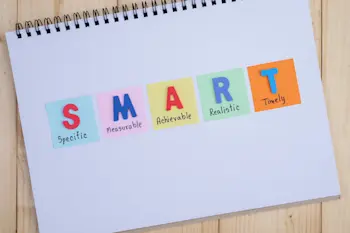Getting Started With Revision

Revision is an effective tool to help students better understand exam material, identify weaknesses, improve grades and boost confidence. However, for many, revision can bring on a sense of dread and unease.
It can be tedious and overwhelming to try and figure out the best place to start and how to make the most of limited study time. But with a little organisation and some good revision tips and techniques, the process can become a lot easier and far more productive.
The following tips can help students get started with revision for their exams…
Create a detailed list or mind map of every subject, topic and sub-topic
It’s always helpful to have a game plan and some tools or resources to hand to help make the revision process smoother when prepping for exams.
When getting started, it is best to formulate a revision plan that clarifies how to spend revision time – create a study guide based on the material that will be covered in each exam module.
Make a detailed list of specific topics and concepts, break down each topic into smaller sub-topics, and then create flash cards or mind maps to help learn and remember the information. It’s also important to practice questions related to each topic to test understanding.
A good tip is to colour-code the level of understanding for each topic – green, orange and red. This is a great way of pinpointing weaker areas that require more focus and attention. By the time the exam approaches, all sections should (hopefully!) be green.
Set goals
Another way for students to make revision more manageable is to set goals for themselves. For example, setting a goal to complete a certain number of pages or chapters in a day will give a sense of accomplishment and encourage students to continue working. Make sure to set reasonable and reachable study targets to drive motivation.
Download our SMART goal template

Prioritise
Every student has their most and least favourite subjects. The trick is to tackle the most challenging ones first – spending a larger amount of time on them as they are likely to be the subjects that trip students up when it comes to sitting their exams.
Make a revision timetable
Once all subjects are in order and a detailed list or map has been created of each topic, the next step is to make a revision timetable. This is one of the best methods to help students learn to revise effectively. A study timetable helps break up revision into manageable chunks, provides a clear overview of the work that needs to be completed each day/week and keeps students accountable and on track.
There are a few different ways to create a revision timetable. We recommend using a table with dates across the top and subjects down the side.
Organise in the most effective way to help retain as much information as possible per session. It’s important for each student to tailor the timetable to their own needs, ensuring it’s realistic and achievable.

Find a comfortable place to study free from distraction
Find a quiet, well-lit place to work, preferably with natural light, that will be comfortable and stimulating. It’s a good idea to keep phones or any other electronic devices in another room to remove any distractions and the temptation to scroll through social media or reply to messages.
Start revision with something fun
Students should always start their revision with something fun to help gather some momentum. It can be a game, an interactive learning resource, watching an informative film or video, or reading something interesting.
Make the text engaging
A key revision technique is to use cue or flash cards to test retention levels. If a student is reading over text on a page again and again without remembering any of the information, it can be frustrating and wastes a lot of precious time.
Taking a more active role by making flashcards cards with questions is recommended for repeated exposure during study periods and helps the words on the page sink in. 5 different types of questions per card with the answers on the back is appropriate and should cover all the information in the text.
Instead of simply reading notes, another top tip is for students to highlight sentences and points that they are struggling to understand or remember. Bright colours help make this bit more fun too, as well as organising and colour-coding subjects.
Read examiner reports
Reading examiner reports will identify focus areas and improve exam technique. They are published alongside past exam papers and mark schemes and review student exam performance and provide detailed information on what answer the examiner was looking for, for each question. Examiner reports are based on past papers, but students should still use them as a guide to answer exam questions and respond to topics.
Take breaks periodically to boost concentration levels
One of the most important things to remember when revising is to take breaks periodically. Regular breaks will improve concentration and help students to retain more information. After a 10-15 minute break, students will return to work with a fresh perspective and increased motivation.
Try not to spend too much time on any one section; if students get stuck on a specific paragraph, it’s best to skip over it and come back later with fresh eyes. Don’t waste energy and time revising with an over-tired mind.
Scheduling time for rest, relaxation and extra-curricular activities each evening is also essential to burn off steam and re-focus for the following day.

Monitor diet and sleeping patterns to increase energy and focus
In order to maximise their chances of success, students should also monitor their diet and sleeping patterns – eating nutritious foods and getting enough sleep is essential for focusing the mind. Foods that are high in sugar or caffeine will give students a short-term burst of energy, followed by a lull – eating like this during revision sessions isn’t sustainable.
Here are a few tips for monitoring diet and sleeping habits;
Eat balanced meals with plenty of fruits and vegetables, whole grains, slow-release carbohydrates, lean protein, and dairy products.
Avoid processed foods, sugary drinks and caffeine in excessive amounts.
Get the recommended sleep each night – a regular bedtime routine and a relaxing environment are conducive to good sleep hygiene.
Drink 2 litres of water per day – staying hydrated improves our ability to execute a task by improving memory, attention and concentration levels.
Stay calm and positive
One of the key things a student should remember during the whole exam revision process is to stay calm and positive – becoming overwhelmed or frustrated will only lead to increased stress and anxiety levels and make the process more challenging.
Try not to let revision stress take over and take each day as it comes. Be patient and remember that everyone learns in different ways – performing well during exam season is not the be-all and end-all of a student’s academic journey.
There’s no exact formula for exam success. Every student has different requirements when it comes to revision. The key is to work out which method works best and stick to it. Ultimately, when it comes to revision and study time, students get out what they put in.
Start your revision journey with confidence
If you decide that extra revision and exam tuition is the way to go, then Explore Learning’s dedicated maths and English tutors are here for your child in the lead up to exam season. Get in touch today and book a free trial.
Cancel anytime
No joining fee
In centre or online
Memberships to suit you
Cancel anytime
No joining fee
In centre or online
Memberships to suit you
Cancel anytime
No joining fee
In centre or online
Memberships to suit you




